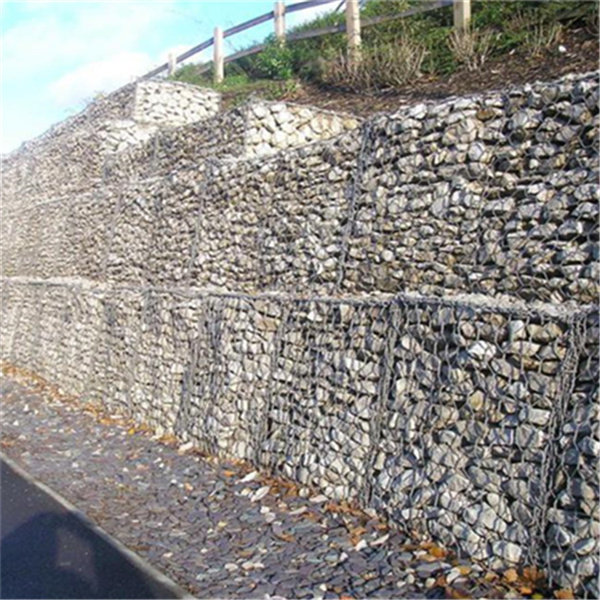aug . 10, 2024 06:45 Back to list
Innovative Design Solutions for Modern Gabion Retaining Walls by Leading Manufacturers Today
Modern Gabion Retaining Wall Manufacturers Innovations in Design and Durability
In the realm of civil engineering and landscaping, gabion walls have become increasingly popular for their aesthetic appeal and structural integrity. Modern gabion retaining wall manufacturers are at the forefront of this trend, offering innovative solutions that blend functionality with sustainability. This article explores the advantages of gabion walls, the evolving manufacturing processes, and the key players in the industry who are shaping the future of landscape architecture.
Understanding Gabion Walls
Gabion walls are constructed using wire mesh containers filled with rocks, gravel, or other materials. These structures serve multiple purposes, including erosion control, slope stabilization, and decorative landscaping features. The versatility of gabion walls makes them suitable for various applications, from highways and embankments to gardens and residential properties.
Advantages of Gabion Retaining Walls
1. Eco-Friendly Materials One of the most compelling reasons to choose gabion walls is their eco-friendly nature. Many manufacturers use locally sourced materials, reducing the carbon footprint associated with transportation. Additionally, the use of natural stones allows the wall to blend seamlessly with the surrounding environment.
2. Durability and Longevity Gabion walls are known for their robustness. The wire mesh is typically galvanized or coated to resist corrosion, ensuring that the walls last for decades even in harsh weather conditions. This durability makes them a cost-effective solution in the long run.
3. Aesthetic Flexibility Modern gabion retaining wall manufacturers offer a variety of design options. From different stone sizes to various shapes and arrangements, these walls can be tailored to fit the vision of any project. This flexibility allows architects and builders to create unique landscapes that enhance the visual appeal of their settings.
modern gabion retaining wall manufacturer

Innovations in Manufacturing
The manufacturing process of gabion walls has evolved significantly over the years. Modern manufacturers employ advanced technologies to improve the quality and efficiency of their products. Computer-aided design (CAD) software allows for precise planning and customization, ensuring that each gabion unit meets the specific needs of the project.
In addition to design advancements, new materials and techniques are being developed to enhance the structural integrity of gabions. For instance, some manufacturers are integrating geogrid systems within the walls for increased stability and load-bearing capacity. This innovation is particularly beneficial in high-stress areas or locations with unstable soil.
Key Players in the Gabion Manufacturing Industry
There are numerous manufacturers worldwide, each contributing to the growth and improvement of gabion technology. Companies specializing in gabion wall production often emphasize their commitment to sustainable practices and innovative designs. For instance, certain manufacturers focus on providing pre-filled gabions, which can save time and labor costs on construction sites.
In recent years, companies have also begun to offer hybrid structures that combine gabions with other materials, such as concrete or timber. This approach not only enhances the wall's functionality but also expands the design possibilities for architects and landscape designers.
Conclusion
Modern gabion retaining wall manufacturers are redefining the landscape of civil engineering and architecture. With their eco-friendly materials, durability, and aesthetic appeal, gabion walls offer a robust solution to various engineering challenges. As technology continues to advance, these manufacturers are likely to introduce even more innovative designs and sustainable practices, making gabion walls a prominent choice in the built environment. As the industry grows, it will be fascinating to see how these structures continue to evolve, shaping the landscapes of the future.
-
Why PVC Coated Gabion Mattress Is the Best Solution for Long-Term Erosion Control
NewsMay.23,2025
-
Gabion Wire Mesh: The Reinforced Solution for Modern Construction and Landscape Design
NewsMay.23,2025
-
Gabion Wall: The Flexible, Seismic-Resistant Solution for Modern Landscaping and Construction
NewsMay.23,2025
-
Gabion Wall Solutions: The Durable, Decorative, and Affordable Choice for Every Landscape
NewsMay.23,2025
-
Gabion Basket: The Durable and Flexible Alternative to Traditional Retaining Walls
NewsMay.23,2025
-
Gabion Basket: The Proven Solution for Slope Stability and Flood Control
NewsMay.23,2025
-
Versatility of Chain Link Fence Gabion
NewsMay.13,2025






